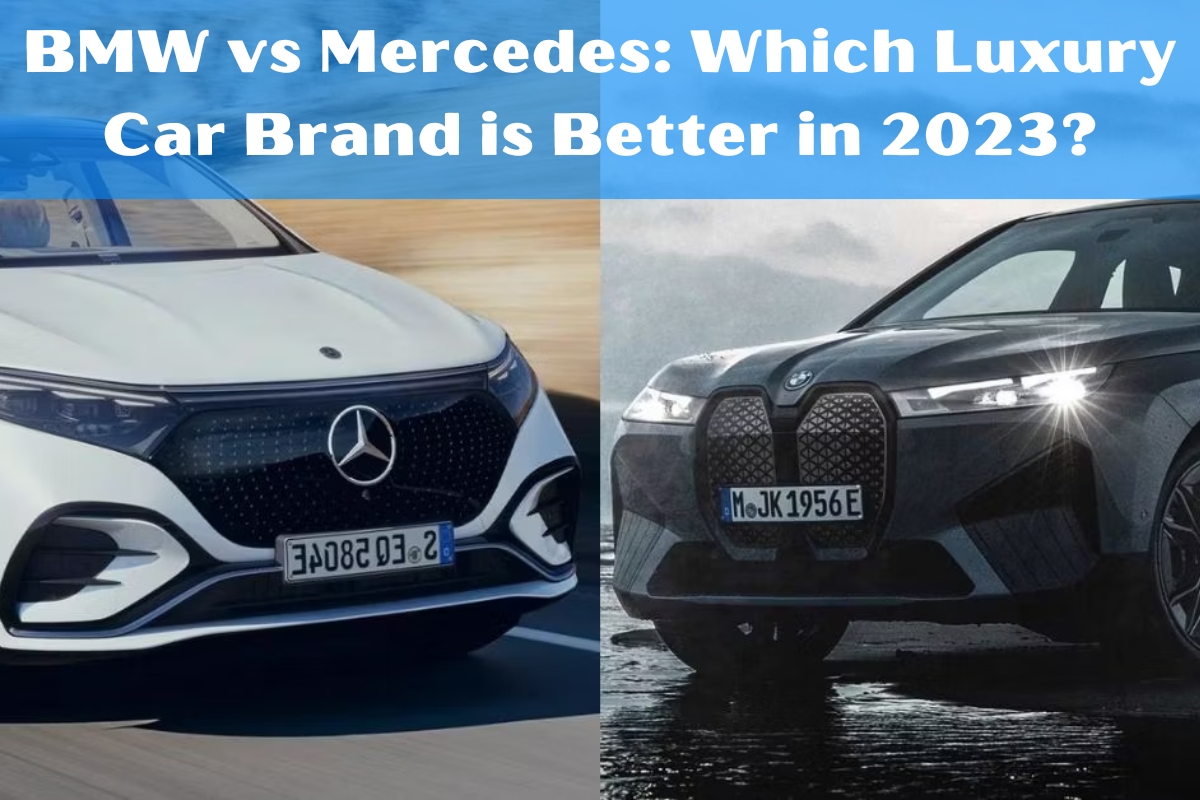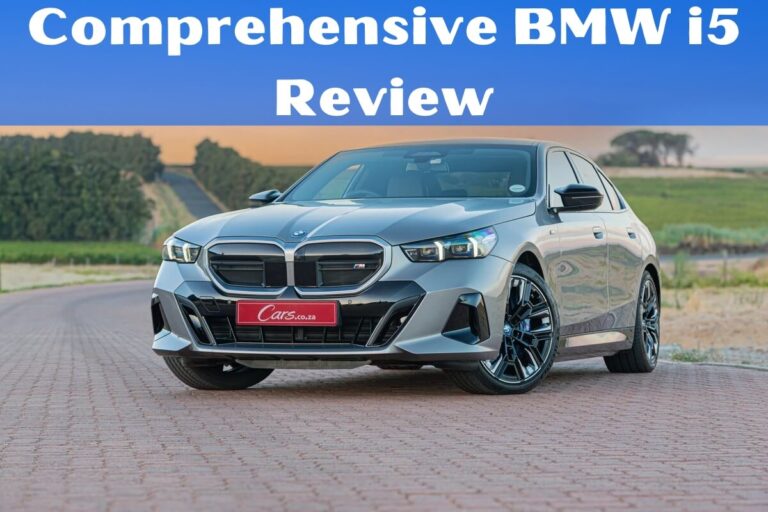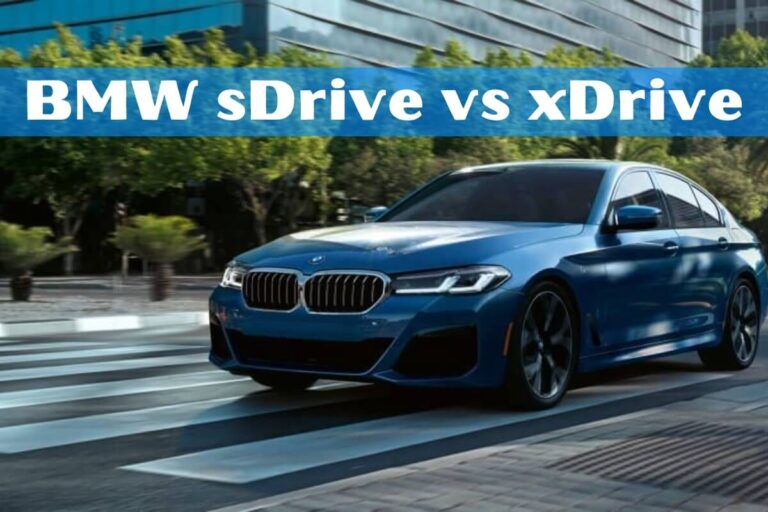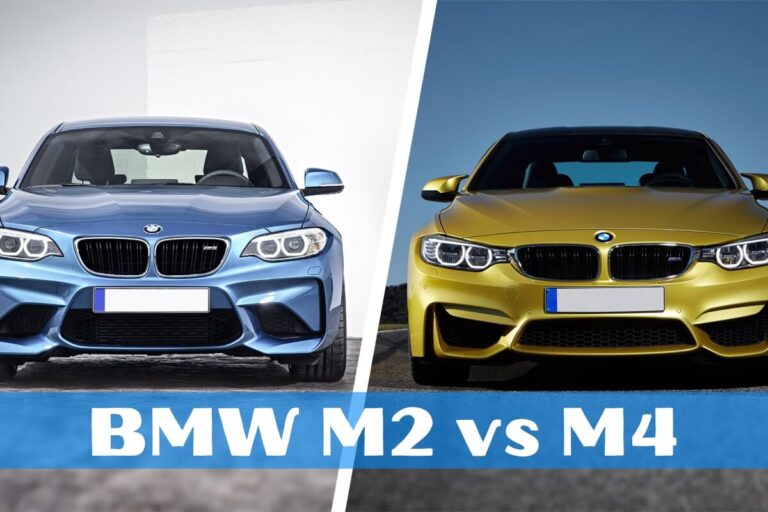BMW vs Mercedes: Which Luxury Car Brand is Better in 2024?

If you’re in the market for a high-end, premium vehicle, the age-old debate of BMW vs Mercedes has likely crossed your mind. Both German automakers are renowned for producing some of the most luxurious, sophisticated, and powerful cars on the road. However, there are some key differences between the two brands that may sway your decision one way or the other.
In this comprehensive guide, we’ll dive deep into the world of BMW and Mercedes-Benz, exploring their histories, model lineups, performance capabilities, interior design, technology features, safety ratings, and overall value proposition. By the end, you’ll have a clear understanding of which luxury car brand might be the better fit for your driving needs and preferences.
A Brief History of BMW and Mercedes-Benz
To truly appreciate the rivalry between BMW and Mercedes-Benz, it’s helpful to understand the origins and evolution of each iconic brand.
BMW (Bayerische Motoren Werke) traces its roots back to 1916, when it was founded as an aircraft engine manufacturer. It wasn’t until 1928 that the company began producing its first automobiles, starting with the Dixi – a small, affordable car that was quickly rebranded as a BMW model. Over the following decades, BMW established itself as a premier builder of high-performance, driver-focused vehicles, ranging from sporty coupes to luxurious sedans.
Mercedes-Benz, on the other hand, can trace its lineage all the way back to 1886 and the invention of the first gasoline-powered automobile by Karl Benz. After merging with Daimler in 1926, the brand quickly became synonymous with exceptional German engineering, innovative technology, and uncompromising luxury. From the iconic S-Class sedan to the rugged G-Wagen SUV, Mercedes has consistently delivered vehicles that cater to the most discerning of customers.
While both brands have evolved significantly over the past century, their core identities and design philosophies have remained relatively intact. BMW is still widely regarded as the “Ultimate Driving Machine,” while Mercedes-Benz continues to set the standard for opulent, refined, and technologically advanced luxury vehicles.
Comparing BMW and Mercedes-Benz Model Lineups
When it comes to the breadth and depth of their model offerings, both BMW and Mercedes-Benz bring an impressive lineup to the table.
BMW currently has around 60 different vehicle models in its global portfolio, spanning everything from compact hatchbacks to high-performance supercars. Some of the brand’s most popular and well-known models include the 3 Series, 5 Series, and 7 Series sedans, the X3, X5, and X7 SUVs, as well as the iconic M3 and M5 performance variants.
Mercedes-Benz, on the other hand, offers a slightly more focused range of around 37 models worldwide. However, this lineup still manages to cover a wide spectrum of vehicle types, from the compact A-Class hatchback to the mammoth GLS full-size SUV. Other standout Mercedes models include the C-Class, E-Class, and S-Class sedans, the GLC and GLE crossovers, and the high-powered AMG performance sub-brand.
One key difference between the two brands’ approaches is the emphasis on driving dynamics. BMW has long been known for its “Ultimate Driving Machine” philosophy, prioritizing nimble handling, responsive steering, and powerful engines that provide an engaging and exhilarating behind-the-wheel experience. Mercedes-Benz, on the other hand, tends to place a greater focus on comfort, luxury, and refinement, although the brand’s AMG performance division certainly has no shortage of high-powered offerings.
Ultimately, both BMW and Mercedes-Benz offer a diverse range of vehicles to suit a variety of driving needs and preferences. Whether you’re in the market for a sporty coupe, a spacious SUV, or a luxurious flagship sedan, you’re sure to find an option that aligns with your personal tastes from either of these prestigious German automakers.
Interior Design and Technology Features
When it comes to the interior design and technology features found in BMW and Mercedes-Benz vehicles, the two brands take slightly different approaches.
BMW is renowned for its driver-centric cabin layouts, with an emphasis on ergonomics and intuitively placed controls. The brand’s iDrive infotainment system is widely praised for its user-friendly interface and customization options, allowing drivers to tailor the in-car experience to their preferences. BMW interiors also typically feature high-quality materials, precise fit and finish, and a focus on creating a sporty, performance-oriented atmosphere.
Mercedes-Benz, on the other hand, is known for its more opulent and luxurious interior designs. The brand’s vehicles often showcase premium leather upholstery, elegant wood or metal trim accents, and a greater emphasis on passenger comfort and ambiance. Mercedes’ MBUX infotainment system is also highly advanced, boasting features like natural language voice control and augmented reality navigation. While the overall cabin layout may be slightly less driver-focused than BMW’s, Mercedes interiors are undoubtedly among the most sumptuous in the luxury car segment.
Both BMW and Mercedes-Benz have also made significant strides in implementing the latest automotive technologies, such as advanced driver assistance systems, wireless smartphone integration, and over-the-air software updates. However, the specific features and capabilities can vary quite a bit depending on the model and trim level you choose.
Ultimately, the choice between a BMW or Mercedes-Benz interior often comes down to personal preference and driving priorities. If you value a more engaging, performance-oriented cockpit, BMW may be the better fit. But if you prioritize opulent comfort and a luxurious, relaxing in-car environment, Mercedes-Benz could be the way to go.
Safety and Reliability Ratings
When it comes to safety and reliability, both BMW and Mercedes-Benz have established reputations for engineering vehicles that are exceptionally well-built and protective of their occupants.
In terms of safety, both brands consistently earn top marks in independent crash testing, with many of their models achieving the highest possible safety ratings from organizations like the Insurance Institute for Highway Safety (IIHS) and the National Highway Traffic Safety Administration (NHTSA). Both BMW and Mercedes-Benz also equip their vehicles with a wide array of advanced driver assistance technologies, including features like automatic emergency braking, lane departure warning, and adaptive cruise control.
However, when it comes to reliability, the two brands tend to have slightly different reputations. According to the Repairpal website, Mercedes-Benz vehicles are generally ranked as more reliable, with a 3 out of 5 star rating, compared to BMW’s 2.5 out of 5 star rating. This means that Mercedes cars are less likely to experience frequent or costly repairs over the long term.
That said, it’s important to note that both BMW and Mercedes-Benz are luxury brands, which means that maintenance and repair costs can be higher than those of more mainstream automakers. After the manufacturer’s warranty expires, BMW vehicles in particular tend to be more expensive to maintain, with owners reporting an average of around $5,000 in additional costs over a 10-year ownership period compared to a Mercedes.
Ultimately, when it comes to safety, both BMW and Mercedes-Benz are top-tier performers, consistently earning high marks from industry experts. However, if long-term reliability and lower maintenance costs are high priorities for you, Mercedes-Benz may have a slight edge over its Bavarian rival.
BMW vs. Mercedes: Which Brand Offers Better Value?
As you might expect, both BMW and Mercedes-Benz are considered premium, luxury brands, which means their vehicles tend to come with premium price tags. However, there are some key differences in terms of overall value proposition.
When it comes to the base model pricing, BMW vehicles tend to be slightly more affordable than their Mercedes-Benz counterparts. For example, the starting MSRP for a 2024 BMW 3 Series is around $42,300, while the entry-level 2024 Mercedes-Benz C-Class has a base price of $43,550.
However, as you move up the trim levels and begin to equip your vehicle with more premium features and options, that price gap tends to narrow significantly. High-end BMW models like the 7 Series or X7 can easily eclipse the $100,000 mark, while top-tier Mercedes-Benz vehicles like the S-Class or GLS can reach similarly stratospheric price points.
In terms of ownership costs, Mercedes-Benz generally has a slight edge over BMW. While both brands are known for their expensive maintenance and repair bills, especially once the manufacturer’s warranty has expired, Mercedes-Benz vehicles tend to have slightly lower average annual maintenance costs. On average, BMW owners report spending around $1,300 per year on maintenance, compared to $1,220 for Mercedes-Benz.
Factors like fuel efficiency, insurance premiums, and resale value can also play a role in determining overall value. Here, the differences between the two brands are relatively minor, with both BMW and Mercedes-Benz delivering comparable performance in these areas.
Ultimately, the “better value” between BMW and Mercedes-Benz comes down to your specific needs, priorities, and budget. If you’re looking to maximize performance and driving enjoyment, BMW may provide more bang for your buck. But if comfort, luxury, and long-term ownership costs are higher on your list, Mercedes-Benz could be the wiser choice.
Conclusion: Choosing Between BMW and Mercedes-Benz
As you can see, both BMW and Mercedes-Benz are exceptional luxury car brands, each with its own unique strengths and attributes. Deciding which one is the “better” choice ultimately comes down to your personal preferences and priorities as a driver.
If you value a more engaging, driver-focused experience with sharp handling and responsive performance, BMW may be the better fit. The brand’s “Ultimate Driving Machine” ethos is evident in models like the 3 Series, M3, and M5, which deliver thrilling acceleration and nimble cornering capabilities.
On the other hand, if you prioritize opulent comfort, cutting-edge technology, and a truly luxurious in-car environment, Mercedes-Benz could be the superior option. The brand’s vehicles, from the C-Class to the S-Class, are renowned for their sumptuous interiors, advanced infotainment systems, and refined, premium driving dynamics.
Factors like safety, reliability, and overall value proposition are also important considerations. While both BMW and Mercedes-Benz excel in these areas, Mercedes-Benz tends to have a slight edge in terms of long-term reliability and maintenance costs.
Ultimately, the choice between these two iconic German luxury brands comes down to your individual needs and preferences. Whether you’re drawn to BMW’s driver-centric character or Mercedes-Benz’s uncompromising elegance, you really can’t go wrong with either option. The best way to decide is to test drive both and see which one speaks to you as the “ultimate” luxury car.






